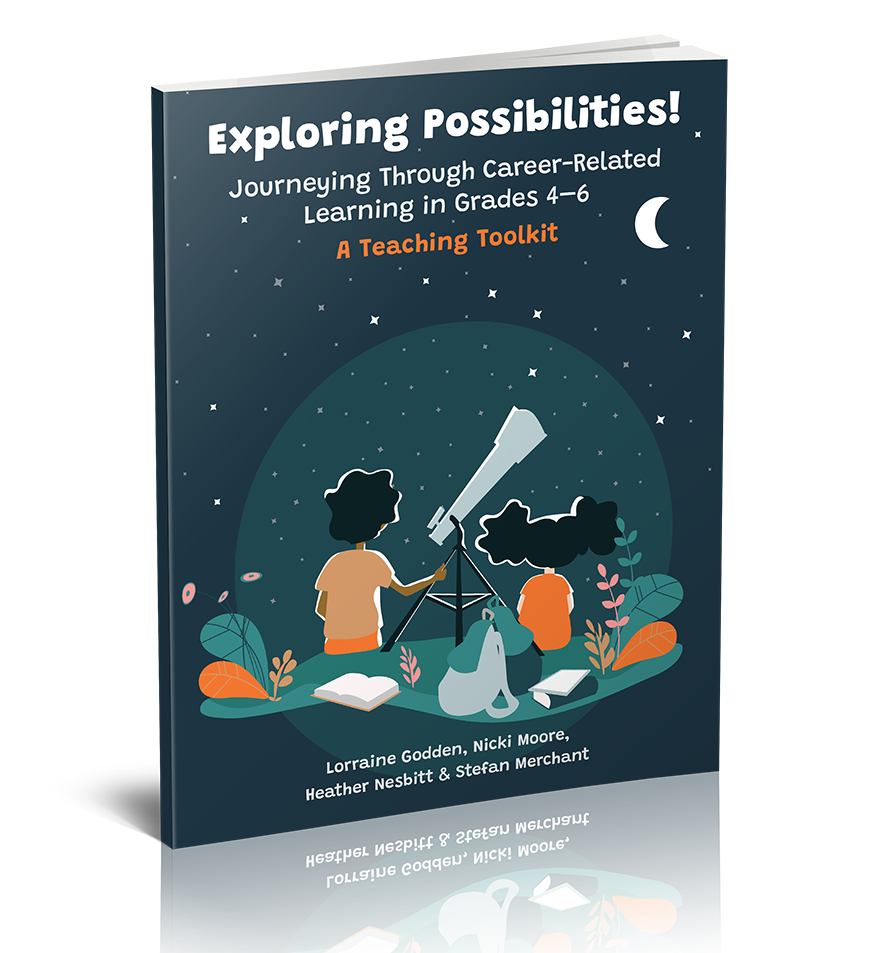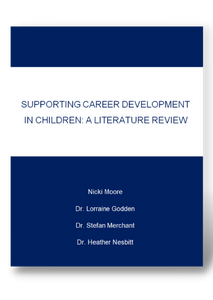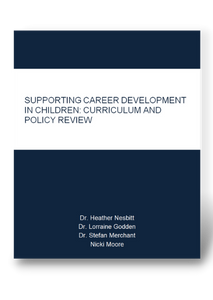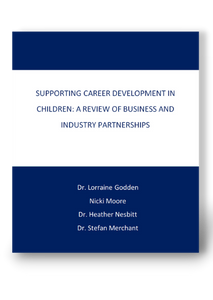
Career-related learning helps children understand who they could become. Alongside that, it helps them develop a healthy sense of self that aids development of their foundational skills and enables them to reach their full potential (Niles & Harris-Bowlsbey, 2016). We know that teachers engage students in a variety of learning and play activities that introduce and develop foundational concepts and skills, such as healthy habits, socioemotional skills, empathy and teamwork. Such concepts and skills are crucial for successful career development in later life-stages, but they are not usually undertaken through a career development lens by grade 4-6 teachers. This study will shed light on how such foundational concepts and skills, introduced and developed by classroom teachers, intersect with career development and manifest into career-related learning in Canadian elementary schools. It is anticipated this research will highlight the important and often unrecognized work done by elementary educators, including what strategies and interventions they use to develop these critical skills.
Project goals:
- Develop a greater understanding of what is happening in elementary education in Canada related to introducing/building career-related foundational skills (including current curriculum, how career development is incorporated into learning);
- Produce a catalogue of career-related foundational skills;
- Produce a teacher’s aid toolkit that validates and informs teacher practice;
- Collate knowledge of different practices in delivering career-related learning;
- Develop a greater understanding of the role geographic context plays in influencing practice related to delivering career-related learning;
- Increase understanding of the barriers and enablers (conditions and strategies) to good practice in career-related learning;
- Identify the learning outcomes required at grades 4-6 for career, enterprise and employability learning;
- Document innovative and creative practices including the use of digital technology to deliver career-related learning;
- Understand approaches to the evaluation of teaching and learning practice; and
- Develop a greater understanding of the training and development needs of teachers, which enable them to be more effective in the delivery of career-related learning.
The project will use a mixed-methods, multi-phase approach, gathering data from educators (including administrators and teachers), parents and grade 4-6 students in public school settings across Canada and individuals within the wider business and industry communities. Diverse perspectives (including Indigenous communities, immigrant communities, francophone communities, special needs educators, and urban, rural, and remote communities) will be included to deepen understanding of individual and collective beliefs, perceptions and interpretations concerning career-related education.
Research is being undertaken by an international project team lead by Dr Lorraine Godden, Senior Partner, Ironwood Consulting and Consultant and Instructor II at Carleton University; Nicki Moore, Senior Researcher iCeGS, University of Derby; Dr Heather Nesbitt, Consultant and Adjunct Assistant Professor at Queen’s University; and Dr Stefan Merchant, Consultant and Adjunct Assistant Professor at Queen’s University. The project team has been extensively involved in a variety of research projects that align with and underpin the need for the proposed study, including research related to the Ontario Youth Job Connection program and the UK’s Gatsby Benchmarks.


This document contains a review of literature which investigates the practices to support the development of career-related foundational skills in children Grades 4-6 in Canadian elementary schools. The review explores the scholarly literature related to career development terminology, career development frameworks and theoretical understandings, and empirical work that examines the ways teachers introduce and develop foundational career skills.
This literature review includes:
- An extensive exploration of career-related terminology that educators might encounter in the career-related work in schools;
- An outline of typical career-related learning outcomes seen in Canada, Australia, New Zealand and the United Kingdom; and
- An examination of what career-related learning looks like in elementary schools.

The curriculum and policy review examines provincial and territorial policy, reporting and curriculum documents for career-related learning, including relevant social studies, health and wellness, and social and emotional learning documents. This pan-Canadian exploration provides insight into what is happening in elementary education across Canada with regards to career development and education.
Findings include:
- Some provinces and territories, such as Ontario, British Columbia and Yukon, have embraced a Kindergarten to Grade 12 approach to career education.
- In other areas of the country, career education begins to emerge in Grades 5 and 6 (e.g., Alberta, Saskatchewan and the Atlantic provinces).
- Still other regions do not appear to have any formal career education currently in place at the elementary level (e.g., Nunavut).

This literature review examines partnerships between elementary schools and business and industry. In particular, it reports on industry perspectives regarding the importance of developing foundational skills. It also establishes where and how the wider business and industry community are providing services, programming, training, resources or partnerships to and with elementary schools across Canada.
This review answers:
- Which provinces and territories have business and industry partnerships?
- What partnerships and programs currently exist between business and industry and elementary schools?
- Which provinces and territories have Industry Education Councils and what connections do they have with elementary schools?
- Teachers – in elementary and secondary schools who are supporting their students with career-related learning;
- Guidance counsellors – who are delivering and managing career-related knowledge, information and services across their schools;
- School leaders and district school board administrators – who are determining the scope of career-related learning across their schools;
- Curriculum developers – who are looking for worthwhile practices to incorporate into career-related programming and development;
- Policymakers – who are directing courses of action across the policy life cycle, and are evaluating the role of different policy actors within career-related policy in schools;
- Government – who are making decisions as to what career-related learning should look like in schools; and
- Business and industry partners – who are making decisions to form or undertake strategies that support career-related learning in their local and broader community schools.
To learn more about this project, contact Dr Lorraine Godden at lorraine@ironwoodconsulting.ca.
